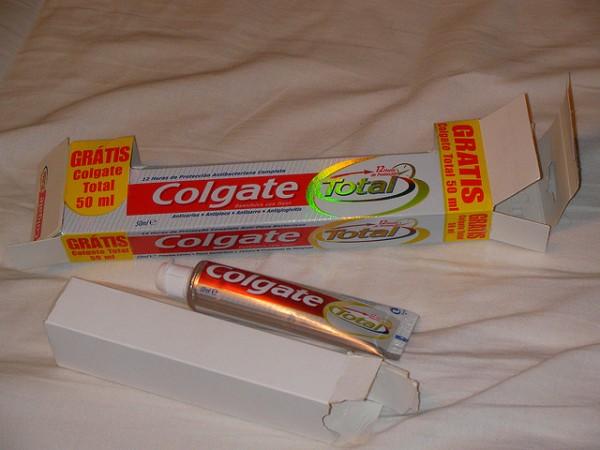
Colgate Total, one of the most popular toothpaste brands in the world, may not be as safe as it is considered to be.
An investigation conducted by Bloomberg.com revealed that the Colgate-Palmolive Company product contained triclosan, an antibacterial chemical linked to cancer and developmental problems in animals.
It was back in July 1997, Colgate Total received green signal from the US regulators for fighting cavities, plaque and gingivitis. However, the product's safety remained unclear for many years as the scientific findings submitted by the company during the FDA approval procedure was kept under wraps until recently. It was released following a Freedom of Information Act lawsuit early in 2014. The agency later made the approval report available to the public. The documents exposed the agency's decision to approve Colgate Total solely on a "company –backed science."
Scientists who re-analysed the approval report and safety of the chemical for Bloomberg pointed out animal studies that linked triclosan to poor birth outcomes, including fetal malformations, low birth weight and premature birth.
However, the results were earlier termed as "incidental" and "maternal toxicity" and dismissed. The scientists cited the chemical as an endocrine disruptor. Exposure to even small amount of the chemical- to say a "pea-sized" Total toothpaste twice a day- was associated with small size at birth and abnormal legs, Caren Helbing, a professor at the University of Victoria in Canada, told the website.
The report also included a cancer study conducted on mice models; however, the agency demanded more solid data to show triclosan's safety. The company said the new cancer study re-submitted in January 1997, succeeded in getting the FDA nod.
However, several animal studies on triclosan have linked it to infertility and impaired muscle function. Citing the risks, in 2010, the European Union restricted using the chemical in products that come into direct contact with food. GlaxoSmithKline Plc, Johnson & Johnson, Procter & Gamble Co. and Avon Products Inc. are some of the companies that have removed the chemical from their products.
Apart from toothpaste, the chemical has been used in several everyday household items, including toys, furniture, soaps, clothing, body washes, cookware and cosmetics. A 2010 report appeared on the FDA website referred triclosan as an ingredient that needs "further review." The agency cited studies that linked triclosan to altered hormone regulation in animals and creation of antibiotic resistant bacteria. The agency, while referring about the1997 Total toothpaste approval attributed its decision to the extra health benefit provided by the ingredient.
However, amidst the controversy, the company is sticking to the claim that its product is safe. "In the nearly 18 years that Colgate Total has been on the market in the U.S., there has been no signal of a safety issue from adverse-event reports," Colgate spokesman Thomas DiPiazza, told Bloomberg after adding that the company has been taking necessary steps to ensure its products' safety by reviewing findings frequently.
Colgate Total that hit the international markets in 1992 is now sold in 173 countries around the world and is the only triclosan containing toothpaste sold in the US.










